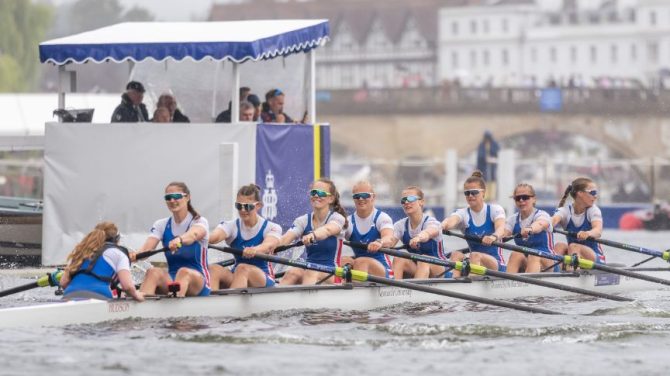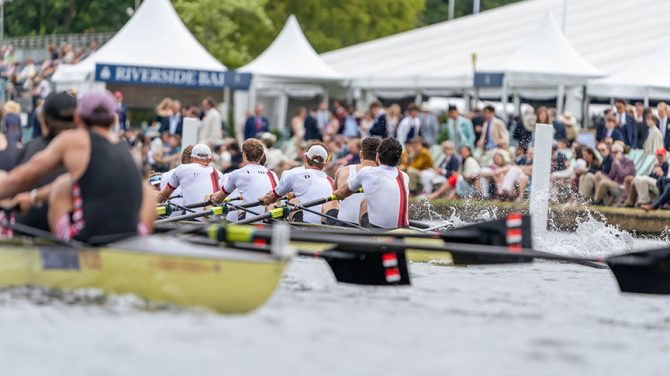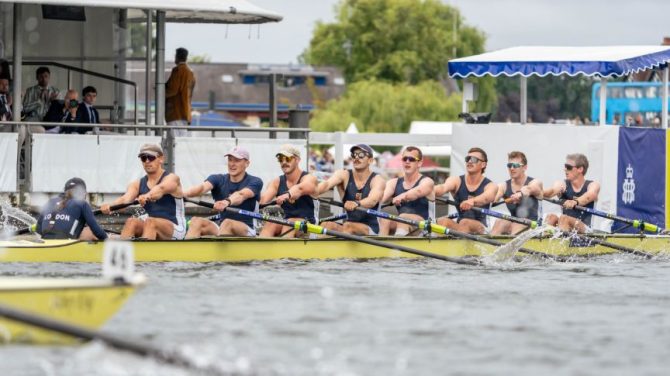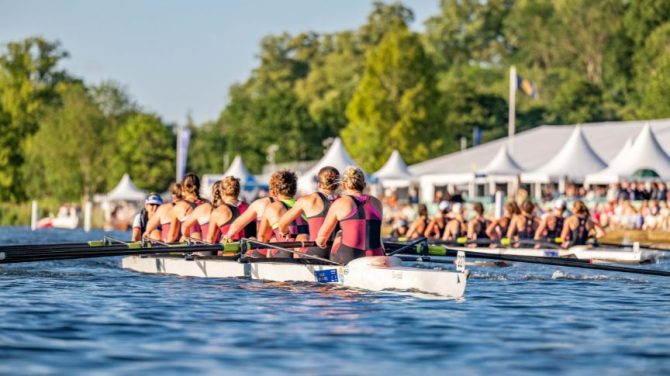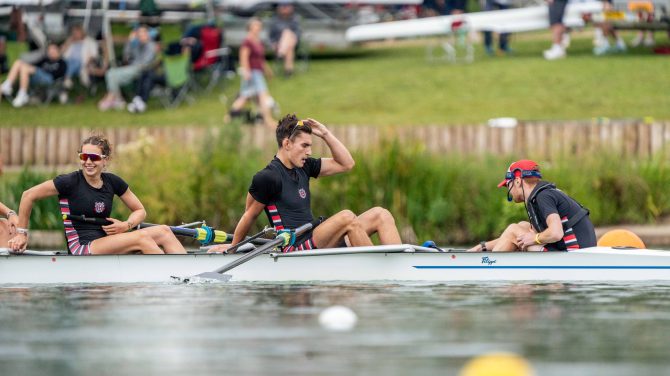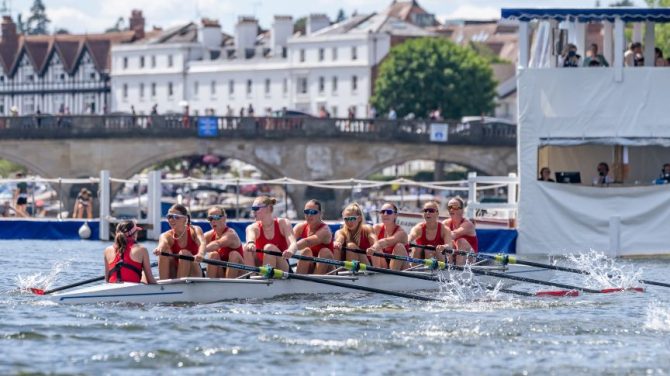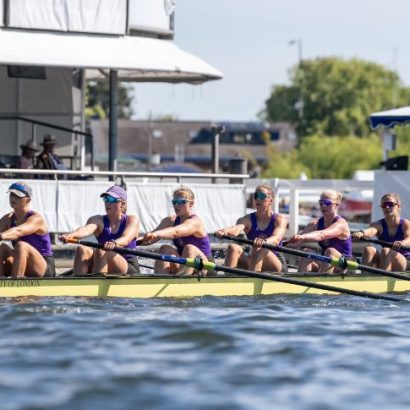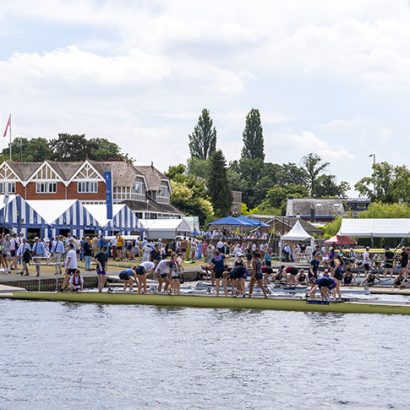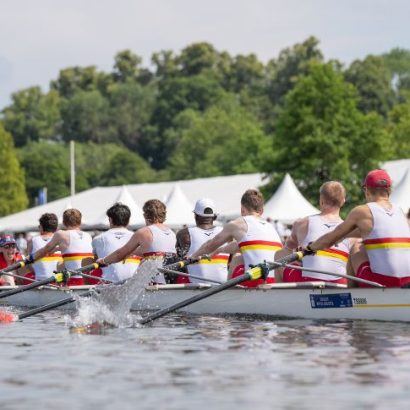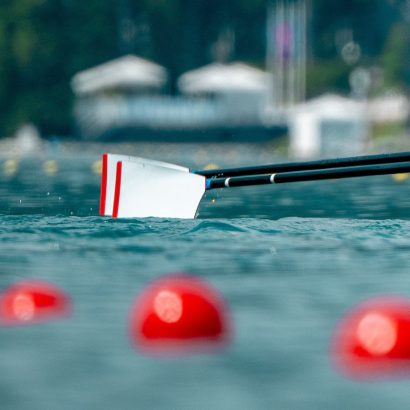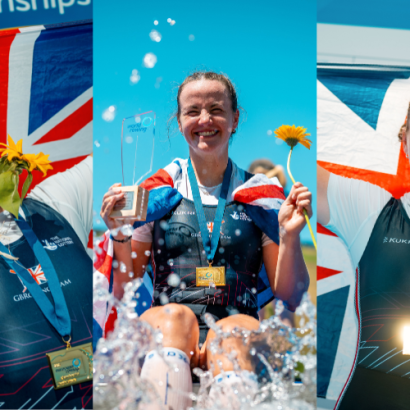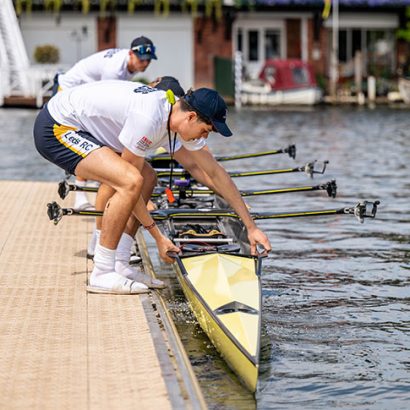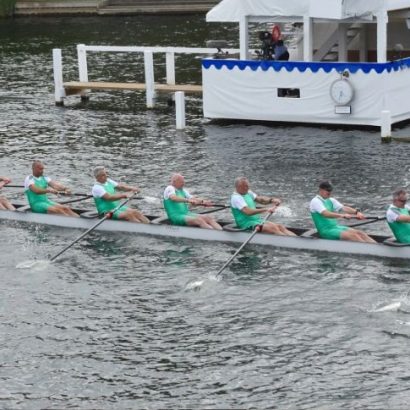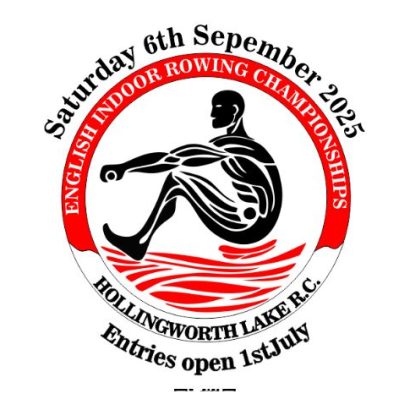News
The story behind Bristol University Boat Club’s record entry to Henley Royal Regatta
We caught up with Senior Coach Freddie Bryce in the boat tents at HRR to talk about Qualifiers, their week of racing so far and what’s next for this exciting club
Rosa Millard and Thames RC set for a title defence at the British Rowing Club Championships
After winning the Mixed Eight amongst other events, Thames RC are back for more, and there are some brilliant prizes on the line
History made as the Bridge Challenge Plate takes flight
Marlow RC write itself into the history books as the Bridge Challenge Plate makes its debut at Henley Royal Regatta
“It has really bonded us”: Mother and son race at Henley Royal Regatta
Lizzy of London RC and Felix of Tideway Scullers both qualified their boats for HRR and had the incredible experience of competing in consecutive races down the iconic course
British Rowing expand indoor rowing partnerships with Dixons Academies Trust
British Rowing and Dixons Academies Trust deliver a new indoor rowing partnership, breaking down barriers to participation
Read More‘We’ve got 42 students qualified’: Dominant depth on day two of Henley Royal Regatta
Molesey BC and the University of London shine as records are broken on the second day of Henley Royal Regatta
Read MoreOverheard at the Henley Royal Regatta boat tents: What is your rowing career highlight?
HRR plays host to athletes at every stage of their rowing career – here are the moments that stuck with them
Read More“One of the best moments we’ve had in recent years.” Marlow and Tideway Scullers shine on day one of Henley Royal Regatta
Under the beating sun, Henley Royal Regatta served up some outstanding racing on day one
Read MoreStudent athletes to represent GB at the 2025 World University Games, Rhine-Ruhr
Twenty-six student athletes and 7 support staff have been selected to race at the World University Games taking place at Duisburg, Germany from 25-27 July 2025
Read MoreLauren Henry Nominated for June’s Athletes’ Athlete of the Month
European Champion and World Cup Winner Lauren Henry recognised by British Elite Athletes’ Association’s (BEAA)
Read MoreFirsts at Henley Royal Regatta: What it means to race the iconic course
Winning a red box is the dream for many, but making it past Qualifiers is a phenomenal feat in of itself
Read MoreThe greatest Henley race of all time: as told by Peter Haining
History is written by the victors. So, Fergus Mainland caught up with Peter Haining to hear all the stories from the 1989 final of the Ladies’ Challenge Plate between Notts County and Harvard University
Read MoreEnglish Indoor Rowing Championships returns after 4 years!
After a four-year break, one of the UK’s premier indoor rowing events is making its long-awaited comeback – and entries are now open
Read MoreAcross The Line: Bedford’s Statement Win and a Weekend for the Juniors
Find out what’s been going on across the UK during the weekend as well as all of the action from World Rowing Cup Lucerne
Read More

